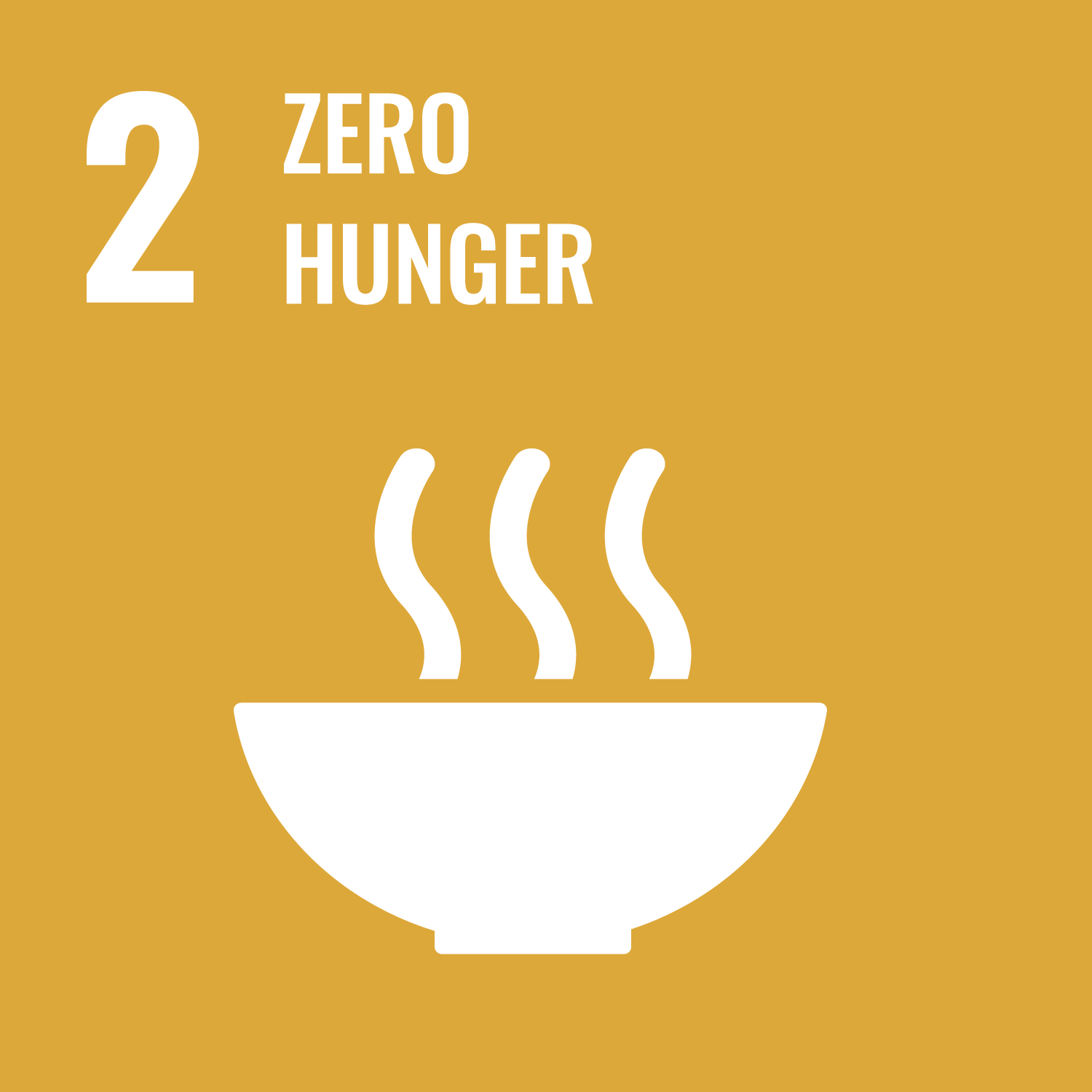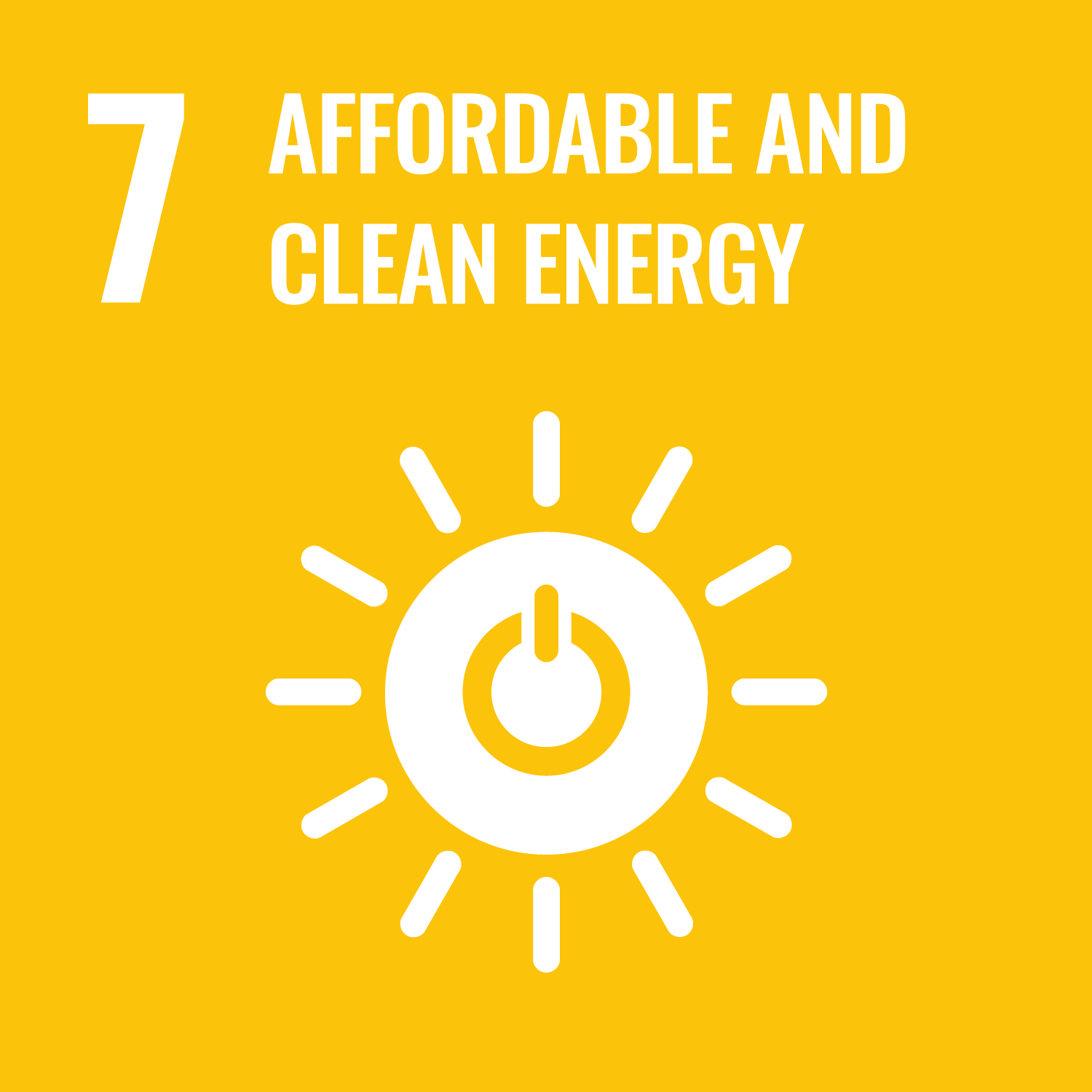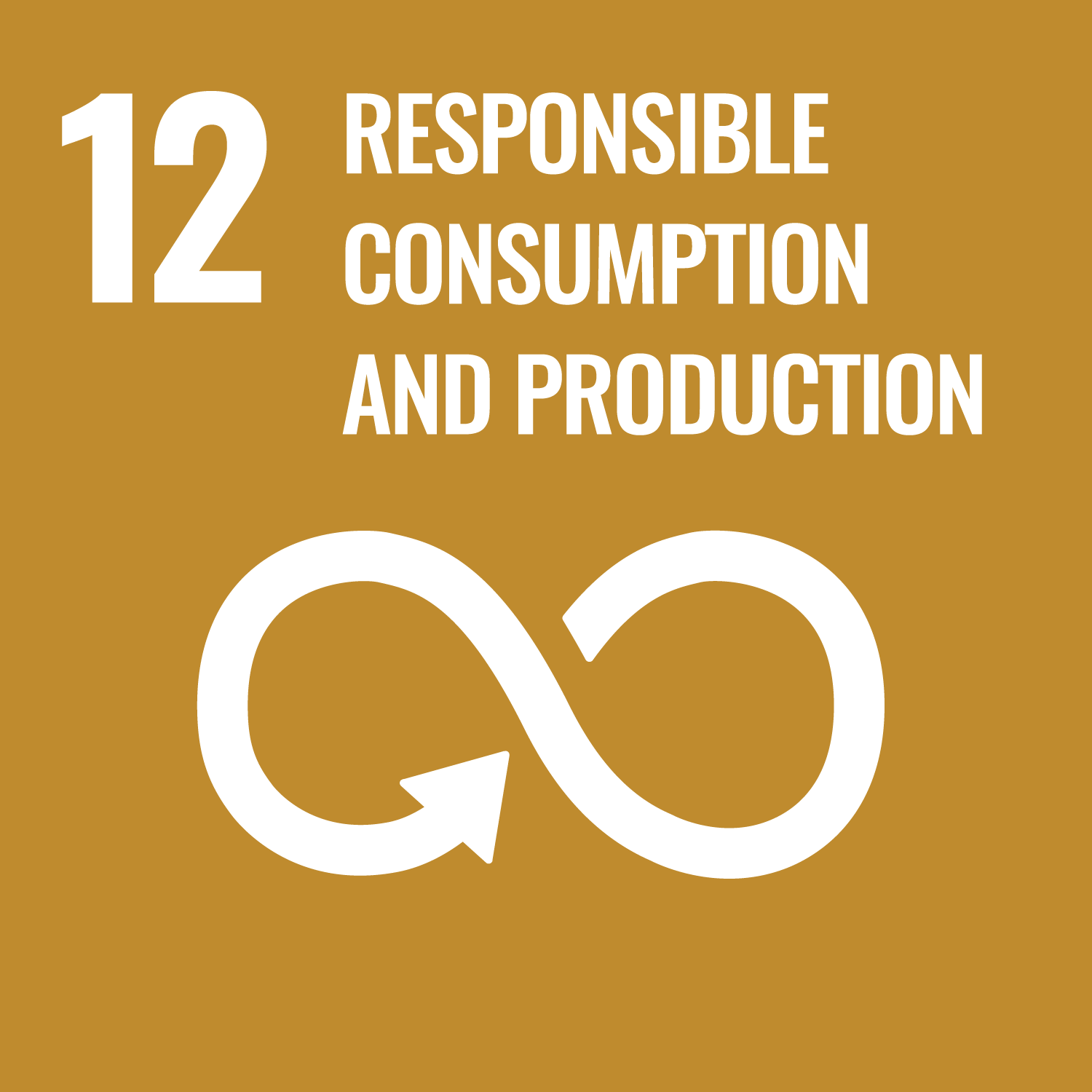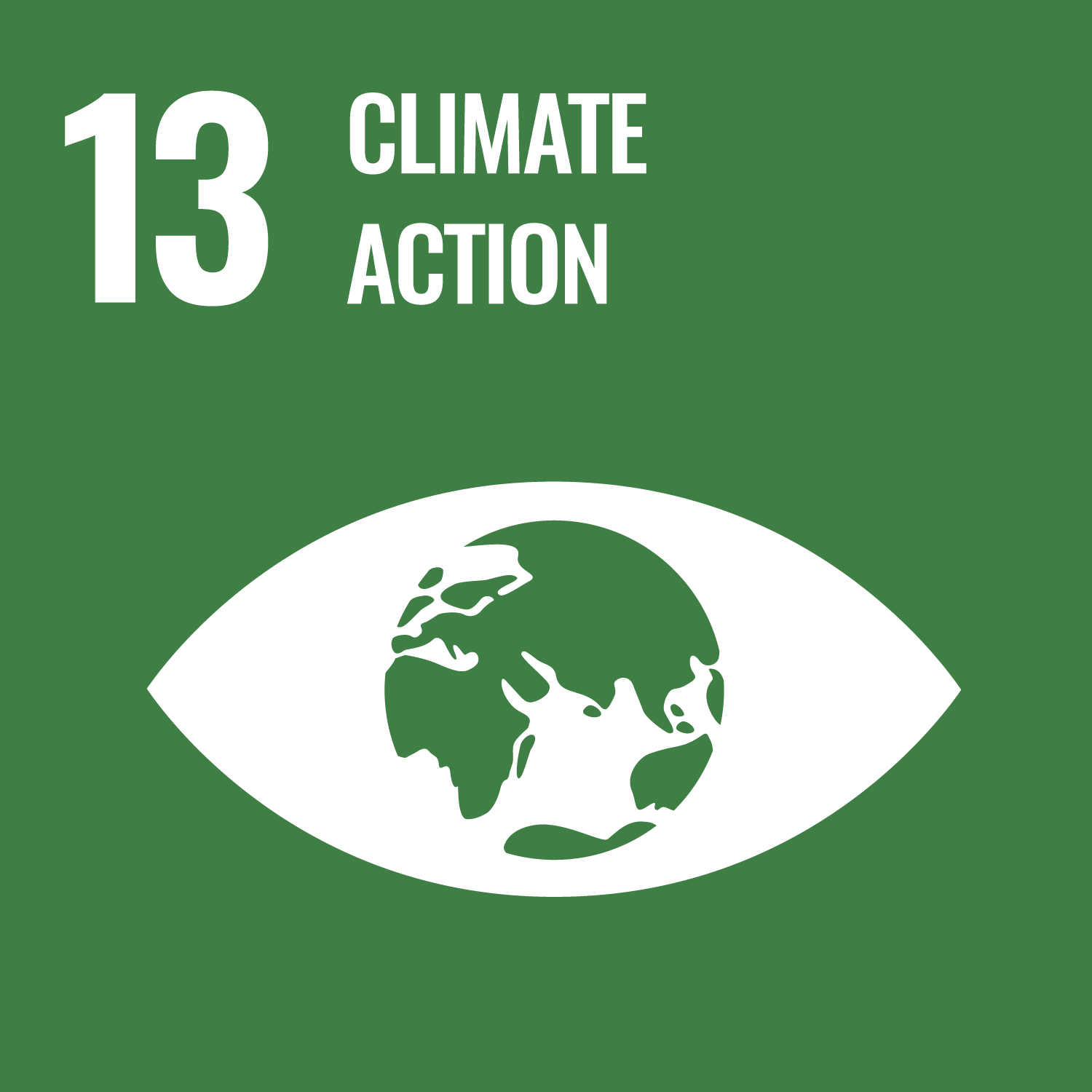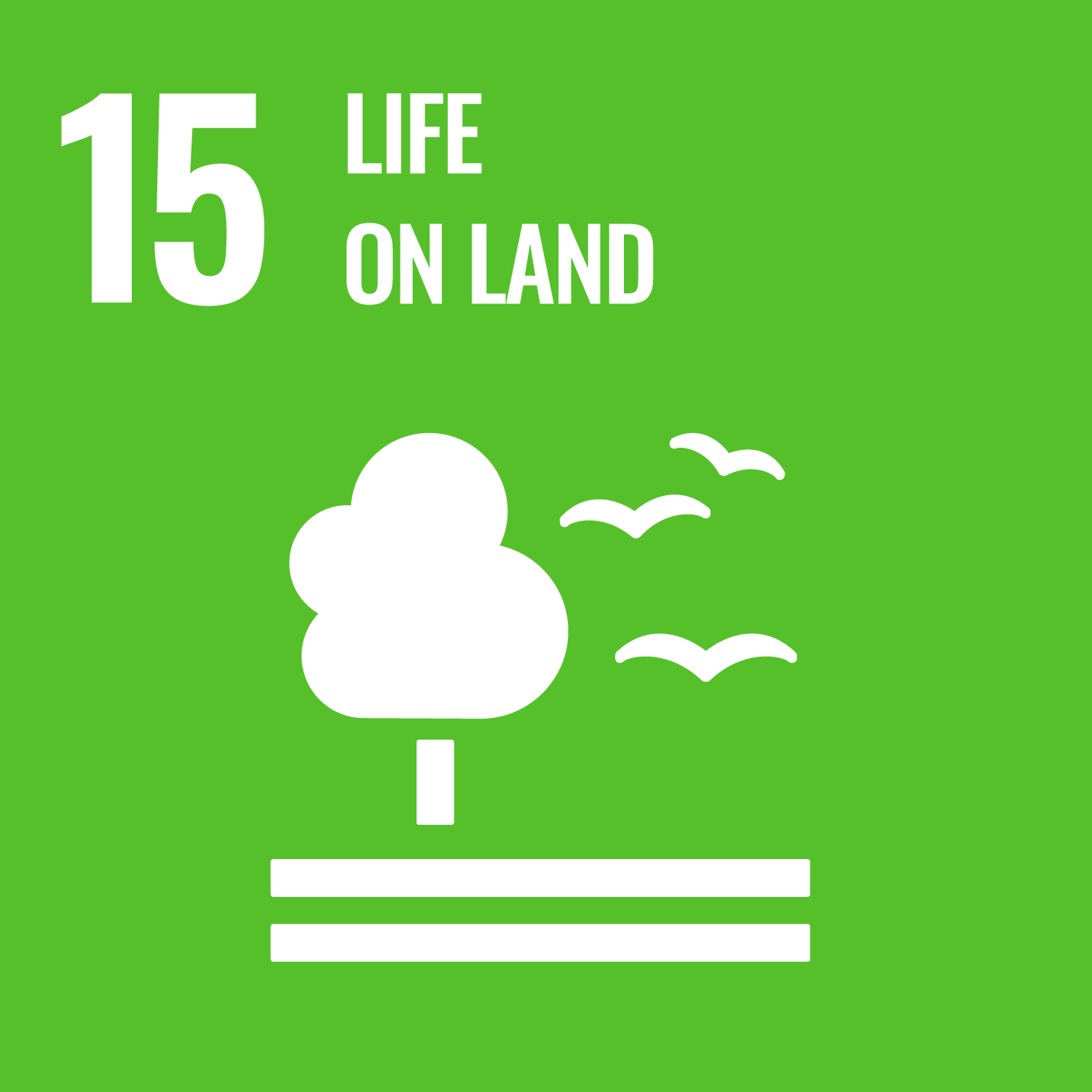Operations

Zero Waste and Circularity
Improvements to TMU’s waste diversion rate
Our most recent diversion report shows that TMU’s waste diversion rate–representing the percentage of waste diverted from landfill for reuse or recycling and organics streams–has increased from 31.74% in 2023 to 37.10% in 2024, marking a 5.36% increase from the previous year.
Additionally, the overall amount of waste generated at TMU decreased by 4% while our capture rate, which represents the percentage of recyclable or compostable materials successfully captured for diversion, improved from 37.66% to 41%.
As TMU continues to work towards its zero-waste by 2035 goal, the Sustainability Office will be focused on continued improvements to the university’s waste management practices and initiatives that promote reuse and recycling.
Understanding the stats
A waste diversion rate represents the percentage of waste diverted from landfill for reuse or recycling and organics streams.
A capture rate represents the percentage of recyclable or compostable materials successfully captured for diversion.
What’s next?
As TMU continues to work towards its zero-waste by 2035 goal, the Sustainability Office will be focused on continued improvements to the university’s waste management practices and initiatives that promote reuse and recycling.
- TMU’s most recent waste diversion rate has increased from 31.74% in 2023 to 37.10% in 2024, marking a 5.36% increase from the previous year.
- The overall amount of waste generated at TMU decreased by 4%.
- Our capture rate improved from 37.55% to 41%.

In October 2023, the Sustainability Office launched the Waste Wizard pilot program, an online tool that empowers users to make informed decisions about the disposal of their waste.
By scanning the Waste Wizard QR code at select four-stream waste receptacles on campus, community members can quickly sort their waste and reduce contamination in TMU’s waste streams.
Since the launch of the pilot, the Sustainability Office has conducted an audit of Waste Wizard signs across campus and has identified locations for an additional 250 signs, which were installed in winter 2025.
Launched in summer 2024, TMU's new Electronics Waste Recycling Program is a critical tool for managing the university’s electronic waste.
A partnership with the Electronics Recycling Association (ERA) (external link, opens in new window) and Facilities Management and Development’s Custodial and Groundskeeping Services, the program responsibly recycles and refurbishes non-data storing electronics, diverting 14,793 lbs of electronic waste from landfills in 2023-2024.
14,793 lbs of electronic waste were diverted from landfills in 2023-2024
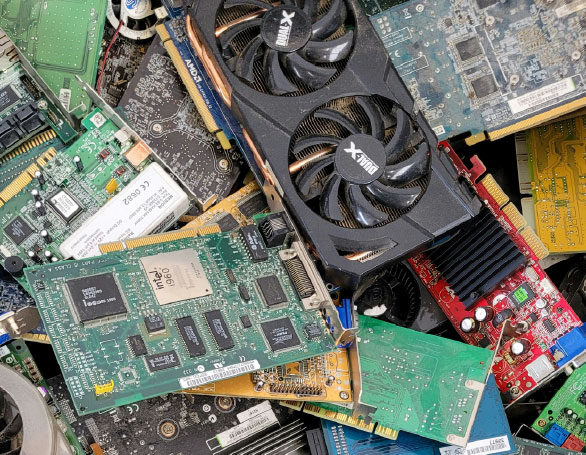

Reuse and circularity in action
8,299 items were rehomed via the Free Store
302 employees used the Furniture Rehome Program in 2023-204, up from 160 in 2022-2023
6,428.13 lbs of waste were diverted from landfill via the Free Store
6,507 Friendlier reusable containers were reused at the Hub Café
14,692 items were rehomed through the Furniture Rehome Program
Sustainable Procurement
In collaboration with Financial Services, the Sustainability Office developed TMU’s Sustainable Purchasing Guidelines to minimize the environmental and social impacts of the university’s procurement decisions. These guidelines encourage the TMU community to adopt a "think before you buy" approach, reducing waste, minimizing environmental harm and promoting social sustainability in line with the university's goals.
Launched in October 2023, TMU’s Social Purchasing Policy reduces systemic barriers for businesses owned by Indigenous Peoples and equity-deserving groups, creating opportunities for smaller, diverse suppliers committed to environmentally sustainable business practices to compete for contracts at TMU.
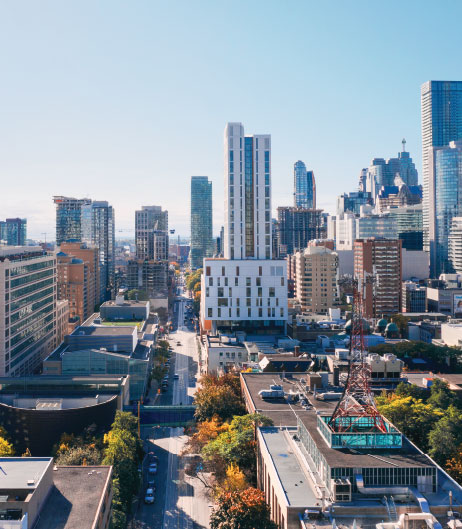
Buildings and Utilities
In alignment with TMU’s goal of achieving net-zero Scope 1 and 2 emissions by 2045, the Sustainability Office successfully completed comprehensive decarbonization feasibility studies in 2023-2024. These studies provide TMU with a roadmap for reducing emissions across various campus operations and infrastructure, with 136 energy efficiency and decarbonization measures identified as a result of these studies.
This past year, TMU completed its campus-wide submetering project, providing the university with more detailed monitoring of energy use across different buildings on campus. This data will support more effective energy management for the university and will help us identify further areas for energy efficiency improvement
As an urban campus located just steps away from Canada’s busiest intersection, space is always at a premium at TMU. Through more efficient space use, the university is reducing resource consumption and minimizing the environmental impact of its building management practices.
In 2023-2024, TMU reduced its use of leased space by 34,000 square feet, generating $1.29 million in annual savings.
Strategic curtailment of chiller plants
Through strategic curtailment of our Library Building and Kerr Hall chiller plants during the province’s highest electricity demand periods, TMU continues to participate in Ontario’s Class A Global Adjustment (GA) program. By reducing our contribution to peak provincial electricity demand, we support grid reliability and help Ontario reduce its reliance on gas-powered electricity generation, which is typically activated during high-demand events. This aligns with our sustainability goals by minimizing both operating costs and provincial greenhouse gas emissions.
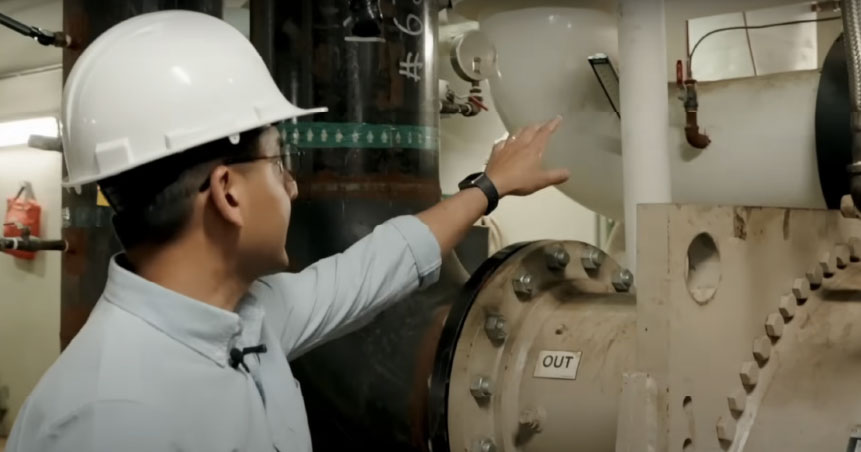
Updated emissions inventory
Each year, the Sustainability Office completes a greenhouse gas (GHG) inventory of TMU’s campus using information collected from utility bills, waste audits and financial statements. Scope 1 and 2 campus GHG emissions increased by 5% during the 2023-2024 fiscal year relative to the previous year, despite an overall reduction in consumption of all utilities. This increase can be attributed to:
- An increase in emissions associated with electricity generation in Ontario, owing to increased use of gas-fired generation plants.
- An increase in emissions associated with steam production, which is the primary form of heating on campus. Steam is generated off-campus and provided to TMU by a third-party provider (Enwave).
Annual Scope 1 and 2 GHG emissions trend 2015-2023
This chart shows the annual Scope 1 and 2 GHG emissions trend measured in tonnes of CO₂ at TMU from 2015-2016 to 2023-2024.
Fiscal Year |
Tonnes CO₂ |
2015/2016 |
12,804 |
2016/2017 |
12,331 |
2017/2018 |
13,850 |
2018/2019 |
14,006 |
2019/2020 |
13,409 |
2020/2021 |
11,446 |
2021/2022 |
13,310 |
2022/2023 |
13,423 |
2023/2024 |
14,143 |
Scope 1 and 2 GHG emissions sources 2023/2024
The following pie charts provide a breakdown of Scope 1 and 2 GHG emission sources on campus for the 2023-2024 fiscal year categorized by utility type. As shown, steam and natural gas used to heat buildings on campus contributed significantly to TMU’s carbon footprint. Despite representing a significant portion of TMU’s total energy use, electricity contributes relatively little to overall emissions, thanks to Ontario’s electricity grid, with over 80% of energy produced coming from low-carbon sources like nuclear, hydro, wind and solar. Steam, in contrast, is generated from fossil fuels and therefore accounts for a disproportionately high share of emissions.
Scope 1 and 2 GHG emissions
by utility type 2023-2024
Emission Source |
Emissions (tCO2e) |
Percent |
Natural gas |
2,520 |
17.82% |
Electricity |
2,456 |
17.37% |
Steam |
9,151 |
64.7% |
Chilled water |
16 |
0.11% |
Energy consumption
by utility type 2023-2024
Energy Source |
Energy Usage (ekWh) |
Percent |
Natural gas |
15,150,536 |
12.54% |
Electricity |
64,635,736 |
53.49% |
Steam |
39,531,837 |
32.72% |
Chilled water |
1,514,215 |
0.13% |
Energy efficiency projects
Lighting retrofits
Between 2019-2024, TMU implemented energy-efficient lighting retrofits in several buildings, including:
- Rogers Communication Centre (RCC)
- South Bond Building (SBB)
- Sally Horsfall Eaton Centre (SHE)
- Student Learning Centre (SLC)
Future retrofits are being planned for the following buildings:
- School of Image Arts (IMA)
- Jorgenson Hall (JOR)
- Library Building (LIB)
- Podium Building (POD)
- Recreation and Athletics Centre (RAC)
- School of Interior Design (SID)
- Ted Rogers School of Management (TRS)
These initiatives will upgrade building lighting systems and reduce energy consumption, thereby freeing up electrical capacity to support additional low-carbon electric heating on campus.

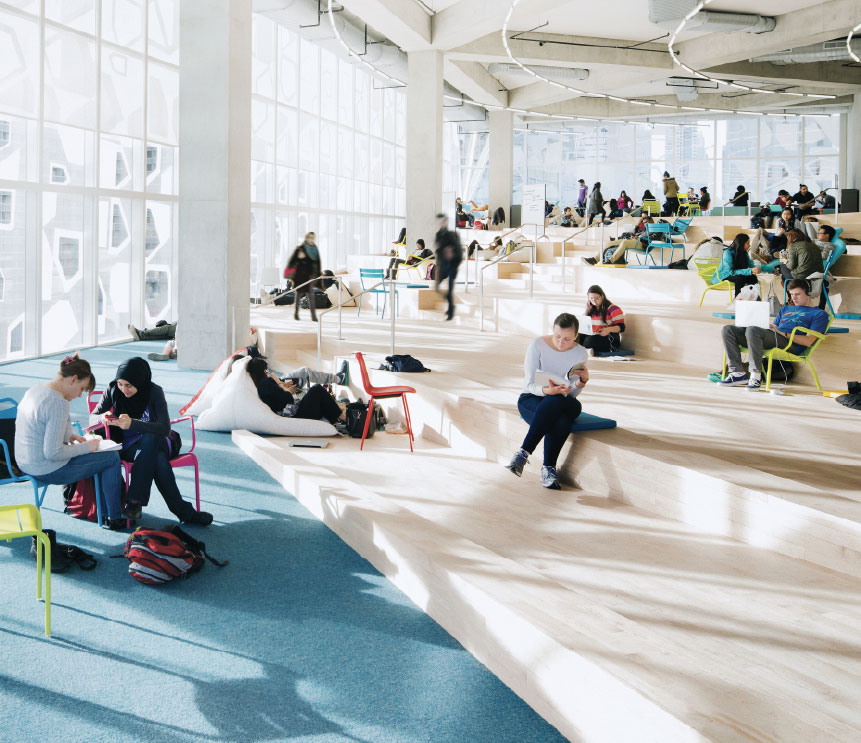
HVAC
The air handling units in Jorgenson Hall (JOR) and the Library Building (LIB) have been refurbished to be more energy efficient, with plans to complete similar work in Victoria Hall (VIC). By incorporating heat pumps for heat recovery, TMU is reducing the buildings' reliance on steam for heating.
Retro-commissioning
Using available funding programs, the Centre for Urban Innovation (CUI) and the Ted Rogers School of Management (TRS) have undergone the investigation phase of a retro-commissioning project that will assess and optimize a building’s energy performance and use and address inefficiencies. Improvement measures for these buildings have been identified, along with approximate savings, GHG reductions and costs for identified measures. Facilities Management and Development is currently assessing which of the identified measures should be prioritized for implementation in these spaces.

Strategic Energy Management (SEM) program
TMU is currently participating in the Strategic Energy Management (SEM) program (external link, opens in new window) administered by Ontario's electricity regulator, the Independent Electricity System Operator (IESO) (external link, opens in new window) . The SEM program is a cohort-based initiative designed to help Ontario-based organizations improve their energy performance and reduce emissions. Through a combination of peer learning, one-on-one coaching and access to online resources and case studies, participants develop the skills, strategies and internal systems needed to embed continuous energy improvement practices within their organizations. The program offers financial incentives based on key milestones achieved within the program.
Through participation in the SEM program, TMU is continuing to build its internal energy management capabilities and develop a culture of operational excellence.
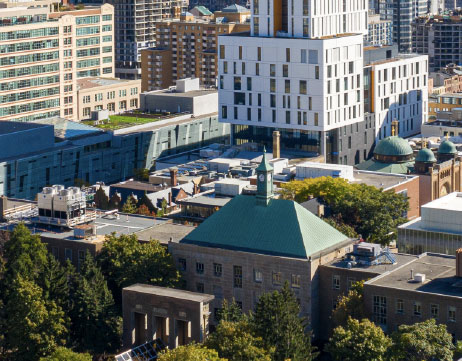
Food and Dining
Food service operations
Friendlier reusable container program
TMU Eats’ Friendlier reusable container program at the Hub Café has had a significant impact on eliminating food waste and reducing the environmental impact of on-campus dining. As of August 2024, the program had diverted over 1,093 kg of Scope 1 and 2 GHG emissions and 378 kg of food waste, while also saving nearly 52,670 liters of water. With 6,507 containers reused in 2023-2024, TMU Eats is making progress towards the adoption of more environmentally-conscious takeout packaging for the dishes they serve up each and every day.
6,507 containers were reused in 2023-2024
Addressing food insecurity on campus
With climate change impacting global food systems, the rising cost of food is forcing some students to make difficult decisions regarding their finances, including skipping meals or purchasing lower quality and nutrient-poor foods. TMU Eats has collaborated with a number of partners across campus on a set of initiatives aimed at tackling food insecurity within the TMU community.
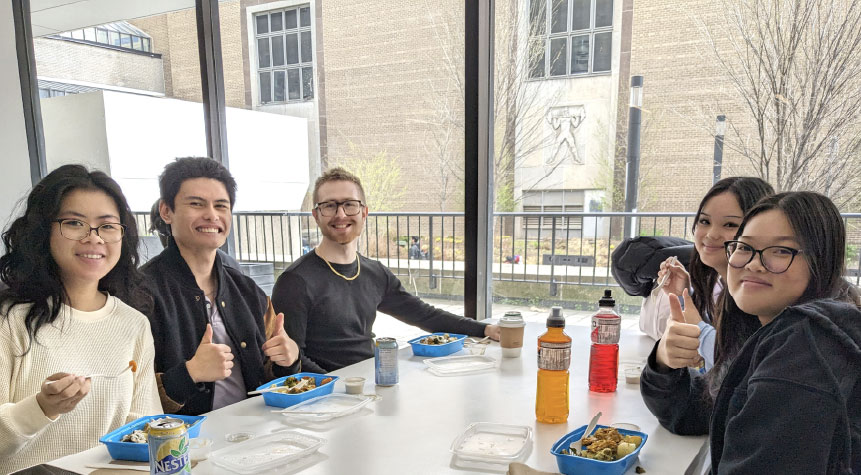
The Free Food Project provided more than 5,400 free meals to students during April 2024 exams.
Transformed from an annual event to a monthly initiative, TMU Eats’ Free Soup Day provided 750+ free cups of soup to help students fuel their studies.
Using the B12Give food redistribution app (external link, opens in new window) , TMU Eats donated 877 lbs of surplus food to individuals in need and diverted 3,333 lbs of greenhouse gases.
The Connecting through Food program not only raised awareness among students of the food insecurity challenges facing some of their peers, but donated non-perishable food items and $1,252 to the Toronto Metropolitan Students’ Union’s Good Food Centre (external link, opens in new window) .
Food insecurity initiatives by the numbers
5,400+ free meals were provided to students in 2024 through the Free Food Project
1,000 students received $50 SkipTheDishes gift cards to access meals over the 2023 winter holidays
750+ free cups of soup were served to students at TMU Eats’ monthly Free Soup Day
$1,252 was donated to the Good Food Centre through the Connecting through Food program
877 lbs of surplus food were donated to individuals in need through the B12Give app
Grounds and Ecosystems
Urban Farm
To support our local ecosystems, in 2023-2024 the Urban Farm increased the number of native wildflower species in their pollinator garden, planting species native to Ontario like yarrow, scarlet bee balm, wild columbine, blazing star and purple coneflower.

Sustainable Transportation
Promoting cycling to campus
In 2023-2024, the Sustainability Office expanded its sustainable transportation resources to make cycling a more accessible and convenient option for students, faculty and staff commuting to campus. The Office created a new Cycling to Campus page, featuring a beginner’s guide to cycling, which includes information on transportation routes and systems, bicycle safety, security tips and bicycle parking options on campus.
In 2023-2024, 97% of commuter students used sustainable modes of transportation to get to campus.

UN Sustainable Development Goals related to these initiatives
